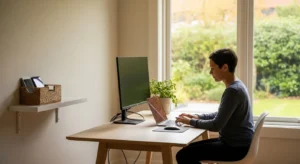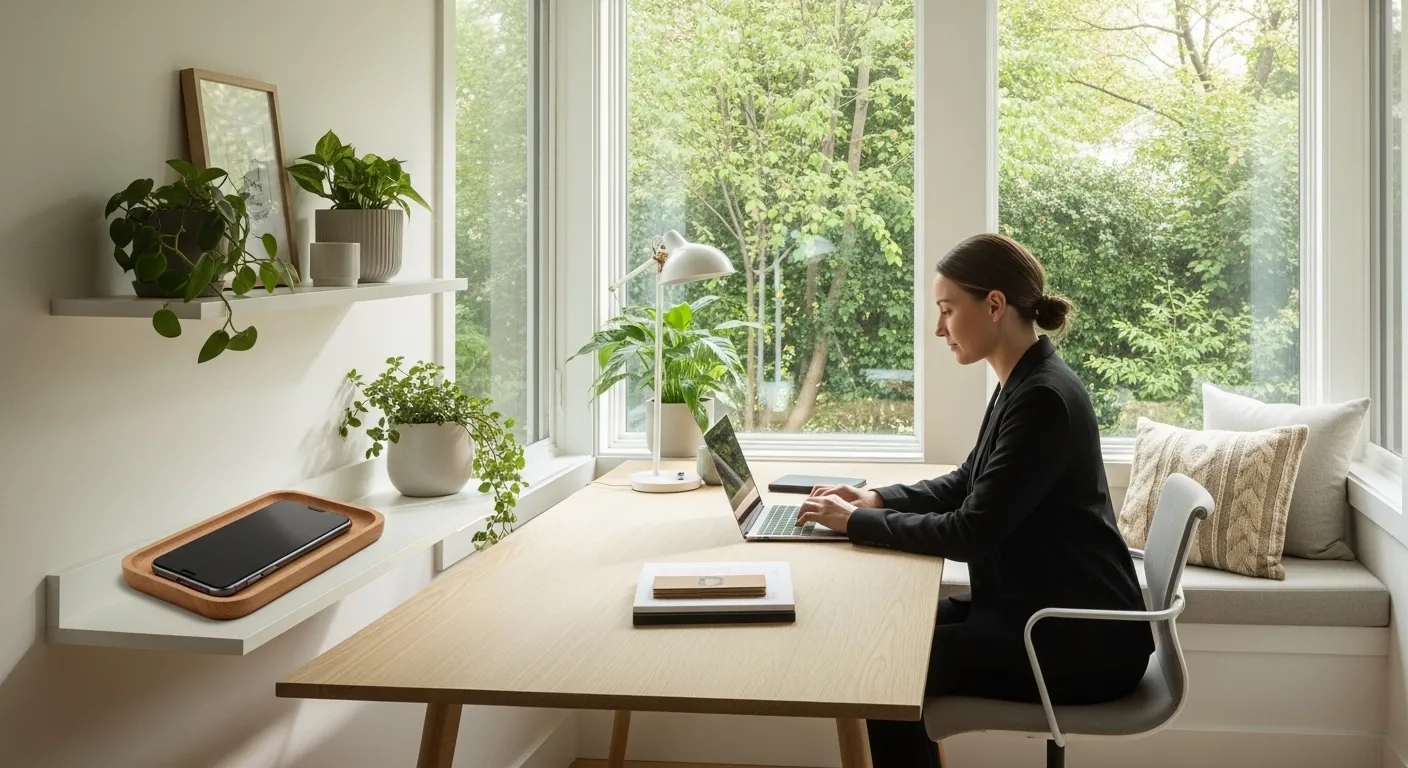
It’s 11:37 PM. You promised yourself you’d be asleep by eleven, but here you are, bathed in the cool, blue glow of your smartphone. Your thumb moves on autopilot, flicking through an endless feed of curated lives, breaking news, and video clips that are just short enough to convince you to watch one more. You feel a familiar pang of guilt mixed with a strange, low-grade anxiety. You know you should stop, but you can’t.
This scene is deeply familiar to millions of us. Our phones have become our constant companions, our portals to the world, and, for many, the last thing we see at night and the first thing we reach for in the morning. But this convenience comes at a cost, and that cost is often our sleep. The constant pings, the engaging content, and the very light emanating from the screen are quietly sabotaging our ability to rest, recover, and recharge.
The consequences ripple through our days: groggy mornings, difficulty concentrating, increased irritability, and a feeling of being perpetually drained. We know the problem is real, but the solutions often feel extreme. A full “digital detox” can seem impractical, if not impossible, in a world that demands constant connectivity.
This is where we offer a different approach. At The Focused Method, we believe in building healthier relationships with our technology, not abandoning it altogether. This guide is not about shaming you for your screen time or demanding you trade your smartphone for a flip phone. Instead, it’s a practical, supportive resource designed to help you understand the powerful pull of your device and create realistic boundaries. We will explore simple, sustainable strategies to build a screen free bedtime routine, helping you reclaim your evenings and, most importantly, your sleep. It’s time to stop letting your phone dictate your rest and start using technology on your own terms.
📚 Table of Contents
- The Science of the Scroll: Why You Can’t Put Your Phone Down
- Reclaiming Your Evenings: Digital Routines for Better Rest
- Your Bedroom is a Sanctuary: Creating a Screen-Free Zone
- From Theory to Practice: Real-Life Scenarios
- Navigating the Bumps: Overcoming Common Hurdles
- Your Questions Answered: A Screen-Free Bedtime FAQ
- My job requires me to be on-call or responsive to late-night emails. How can I manage this?
- I work the night shift. How do these principles apply to me?
- How can I implement a screen-free bedtime for my kids and teenagers?
- I use apps to track my sleep or for meditation. Do I have to give those up?
- What about privacy concerns with sleep-tracking apps or focus modes?
- Your First Steps to a More Restful Night
The Science of the Scroll: Why You Can’t Put Your Phone Down
To change a habit, we must first understand the forces that created it. The magnetic pull of your phone, especially before bed, isn’t a sign of weakness or a lack of willpower. It’s the result of sophisticated design, rooted in a deep understanding of human psychology. Our brains are wired to seek rewards, and our devices are masterfully engineered to provide them.
One of the key players in this dynamic is a neurotransmitter called dopamine. Often called the “feel-good” chemical, dopamine is more accurately described as the molecule of motivation. It’s released when we anticipate a potential reward, driving us to seek it out. This system was essential for our ancestors’ survival, pushing them to find food or seek shelter. Today, app developers leverage this same system to keep us engaged.
This creates what is known as a dopamine loop. A dopamine loop is a cycle of motivation, action, and reward. When your phone buzzes, your brain releases a tiny hit of dopamine in anticipation of the reward: a message from a friend, a like on a photo, or an important email. You pick up the phone (the action) and see the notification (the reward). This reinforces the behavior, making you more likely to check your phone the next time it buzzes, or even when it doesn’t. Social media feeds, with their unpredictable stream of new content, are a perfect example of a variable reward schedule—the same psychological principle that makes slot machines so addictive. You never know what you’ll find, so you just keep scrolling.
Understanding this loop is the first step toward breaking it. It helps us see that our late-night scrolling isn’t a personal failing but a predictable response to a powerful stimulus. For more on the psychological principles behind behavior, the American Psychological Association provides extensive resources.
Beyond the psychological pull, there’s a critical physiological reason why the phone before bed effects our rest so profoundly: blue light. Blue light is a high-energy, short-wavelength light that is part of the visible light spectrum. During the day, sunlight is our primary source of blue light, which is beneficial. It boosts alertness, helps memory and cognitive function, and elevates mood.
However, our brains associate blue light with daytime. Exposure to it at night, from sources like smartphones, tablets, and laptops, sends a confusing signal to our internal body clock, or circadian rhythm. Specifically, blue light suppresses the production of melatonin, the hormone responsible for regulating our sleep-wake cycles. When melatonin levels are low, our bodies don’t get the clear signal that it’s time to sleep. This can make it harder to fall asleep, reduce the quality of our sleep, and leave us feeling unrested in the morning. According to research highlighted by organizations like the National Institutes of Health, this disruption can have long-term consequences for our overall health.
So, as you lie in bed scrolling, you’re caught in a two-pronged trap. Psychologically, the endless stream of potential rewards keeps your brain engaged and wanting more. Physiologically, the light from the screen is telling your brain to stay awake. This combination makes it incredibly difficult to transition into a state of restful sleep, illustrating the direct link between your phone and sleep quality.

Reclaiming Your Evenings: Digital Routines for Better Rest
Knowing why your phone is so captivating is half the battle. The other half is building practical systems to counteract its pull. The goal is to make intentional choices easier than mindless scrolling. Instead of relying on sheer willpower in moments of fatigue, we can create automated routines and environments that gently guide us toward better sleep habits. This is a core principle of digital wellness.
Most modern smartphones come equipped with powerful tools designed to help you manage your screen time. It’s time to put them to work for you.
Set Up a “Focus Mode” for Sleep
Both iOS (with “Sleep Focus”) and Android (with “Bedtime Mode”) have dedicated features for this. A sleep-focused mode is more than just silencing your phone; it’s a comprehensive tool. You can schedule it to turn on automatically an hour or so before your target bedtime. When active, it can simplify your lock screen, hide distracting app badges, and, most importantly, filter your notifications. You can customize it to allow calls and messages only from specific contacts (like immediate family) while silencing everything else until morning. This single step transforms your phone from a source of endless distraction into a tool that respects your need for rest.
Practice Notification Triage
Our phones are constantly vying for our attention with a barrage of notifications. The solution is not to turn everything off, but to become a ruthless triage specialist. Go into your settings and review your notifications app by app. For each one, ask: “Do I need to see this in real-time?” The answer for most apps—social media, news, shopping, games—is a definitive no. Turn their notifications off completely. For others, like email or messaging apps, you might keep them on but disable sounds and banners.
This leads to the practice of notification batching. Instead of reacting to every ping, you set aside specific, brief times during the day to check these apps. By doing so, you are training your brain to stop anticipating constant rewards, which weakens the dopamine loop. Your phone becomes a tool you consult, not a master you serve.
Redesign Your Home Screen
Think of your phone’s home screen as prime real estate. If the most distracting apps are front and center, you’re making it incredibly easy to fall into a time-wasting rabbit hole. A simple but effective strategy is to design a minimalist, “utility-first” home screen. Move all your essential but boring tools—like the clock, calendar, calculator, and maps—to the first page. Then, move all your high-engagement apps (social media, video streaming, news) into a folder on the second or third page. This small bit of friction—having to swipe and open a folder—can be enough to make you pause and ask, “Do I really want to open this right now?”
Use App Timers to Set Boundaries
For the apps that are your biggest time sinks, set a daily limit. Both iOS (“Screen Time”) and Android (“Digital Wellbeing”) allow you to set timers for specific apps or categories. For example, you could give yourself 30 minutes of social media per day. When your time is up, the app icon will dim, and you’ll receive a notification. While you can usually override the limit, it serves as a powerful reminder of your intentions. It breaks the spell of mindless scrolling and forces a moment of conscious choice. Setting these timers to activate in the evening can be a particularly effective way to start winding down and improve sleep habits.
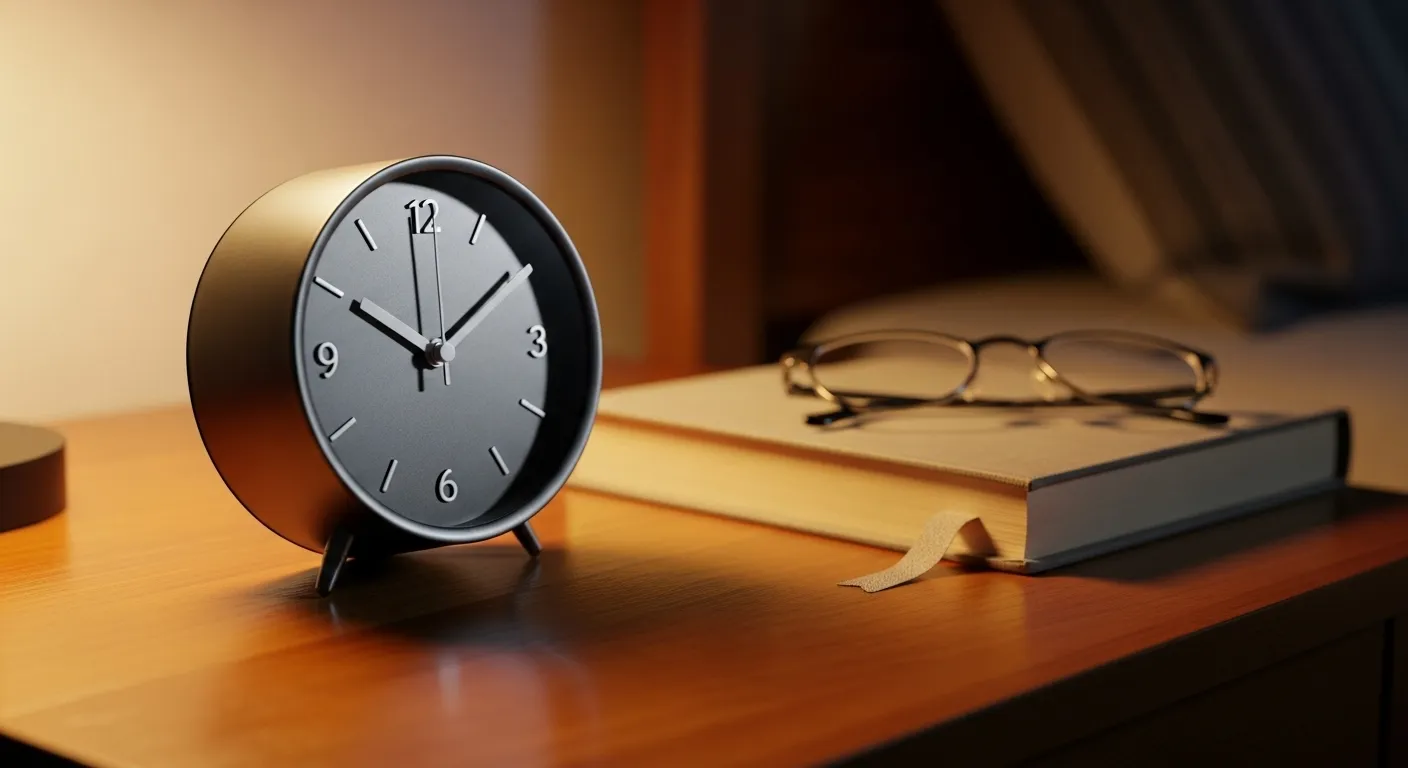
Your Bedroom is a Sanctuary: Creating a Screen-Free Zone
While digital routines on your device are crucial, the physical environment where you sleep plays an equally important role. Our brains are highly associative. If you consistently work, eat, and scroll in bed, your brain learns to associate your bedroom with activity and alertness, not with rest and relaxation. To truly improve sleep habits, we must reclaim the bedroom as a sanctuary dedicated to sleep.
The single most impactful change you can make for a screen free bedtime is to establish one simple, non-negotiable rule: your phone does not sleep in your bedroom. This might sound drastic, but its benefits are profound. Removing the phone from your bedside eliminates the temptation to scroll before sleep, check notifications if you wake up in the middle of the night, and start your day by immediately consuming a stream of information and demands.
The most common objection to this rule is, “But I use my phone as my alarm clock!” This is an easy problem to solve. Invest in a simple, inexpensive, standalone alarm clock. It can be a basic digital clock or even a sunrise alarm clock that wakes you with gradually increasing light. This small purchase is a powerful investment in your sleep quality. By decoupling your wake-up tool from your biggest distraction, you remove the primary justification for keeping your phone within arm’s reach.
To make this rule stick, create a designated “device docking station” somewhere outside your bedroom. This could be a small table in your living room, a shelf in your kitchen, or a corner of your home office. Every night, as part of your wind-down routine, all phones, tablets, and smartwatches go to the docking station to charge. This creates a clear, physical boundary between your connected, active day and your disconnected, restful night. It’s a ritual that signals to your brain that the time for stimulation is over.
With your phone now out of the room, you might wonder what to do in the 30-60 minutes before you go to sleep. This is an opportunity to rediscover sleep-friendly evening activities that calm the mind rather than stimulate it. Consider these alternatives:
* Read a physical book or an e-reader that uses e-ink technology, which does not emit disruptive blue light.
* Listen to a calming podcast, an audiobook, or relaxing music. You can start it on your phone before you put it away for the night or use a smart speaker.
* Do some light stretching or gentle yoga to release physical tension from the day.
* Write in a journal. This can be a great way to process your thoughts, unload worries, and clear your mind before sleep.
* Spend some quiet time meditating or practicing deep breathing exercises.
Think about the cues in your environment. You have a desk for work, a kitchen for cooking, and a sofa for relaxing. Each space primes your brain for a specific activity. By making your bedroom a strictly screen-free zone, you are creating a powerful environmental cue for sleep. When you enter your bedroom at the end of the day, your brain will begin to associate it with only one thing: rest. This is one of the most effective strategies for a better relationship between your phone and sleep, as recommended by experts at organizations like the Sleep Foundation.

From Theory to Practice: Real-Life Scenarios
Understanding the principles of a screen-free bedtime is one thing; implementing them in a busy life is another. It’s easy to feel overwhelmed by the idea of a major habit change. The key is to start small and be realistic. Here are two worked examples of what a healthier evening tech routine could look like, proving that you don’t need to completely overhaul your life to see significant benefits.
Worked Example 1: The 30-Minute Evening Wind-Down
Let’s imagine a person named Alex who typically scrolls on their phone in bed until they feel tired, which is often past midnight. Alex wants to start a simple routine that doesn’t feel restrictive. The goal is to create a 30-minute buffer between screen time and sleep time.
Step 1: Set the Digital Sunset (Target Bedtime: 11:00 PM)
At 10:00 PM, Alex’s “Sleep Focus” mode automatically activates on their phone. All notifications, except from a few key family members, are silenced. App timers for social media and news apps have already been exhausted for the day.
Step 2: The Final Check-In (10:20 PM)
Alex takes five minutes to do a final, intentional check of any essential messages or emails. This isn’t a mindless scroll; it’s a purposeful sweep to ensure there are no emergencies. This helps alleviate the anxiety of feeling completely cut off.
Step 3: The Docking Ritual (10:25 PM)
Alex walks to the kitchen, plugs the phone into its designated charger for the night, and leaves it there. The phone is now physically separated for the rest of the evening.
Step 4: The Analog Activity (10:30 PM)
Alex heads to the bedroom, where a physical book is waiting on the nightstand (along with a real alarm clock). Alex reads for 20-25 minutes. The light is dim, the room is quiet, and the activity is calming and single-focused.
Step 5: Lights Out (Around 11:00 PM)
Feeling naturally drowsy from the reading and the lack of blue light stimulation, Alex turns off the light. The mind is calmer, and the transition to sleep is smoother.
This routine is manageable, takes only half an hour, and systematically addresses both the psychological and physiological phone before bed effects. It’s a perfect starting point to improve sleep habits.
Worked Example 2: The Realistic Weekend Digital Detox
Now, let’s consider Sam, who finds that weekends are when their screen time spirals the most. The idea of a full 48-hour detox feels isolating and unrealistic. Instead, Sam decides to implement a “digital sunset” on Saturday evenings.
The plan is simple: from 7:00 PM on Saturday until 9:00 AM on Sunday, personal phones are put away in the docking station. This isn’t about cutting off technology altogether, but about shifting the *type* of technology used.
Instead of everyone in the household scrolling on their individual devices, the focus shifts to shared, less interactive experiences. Saturday night could now involve:
* Watching a movie together on a television, which is a more passive screen experience viewed from a distance.
* Playing a board game or a card game.
* Cooking a meal together while listening to a shared music playlist on a smart speaker.
* Reading or pursuing individual hobbies in the same room.
This approach achieves several goals. It creates a dedicated period of deep rest from the constant stimulation of personal devices. It encourages presence and connection with loved ones. And by being a limited, specific timeframe, it feels achievable and sustainable. It’s a powerful digital wellness practice that provides a much-needed reset without requiring complete disconnection from the modern world.

Navigating the Bumps: Overcoming Common Hurdles
Embarking on a journey to create a screen free bedtime is a commendable goal, but it’s rarely a perfectly straight line. You will encounter challenges, moments of weakness, and external pressures. Anticipating these hurdles and having a plan to navigate them is key to long-term success. Remember, the goal is progress, not perfection.
Handling Relapse Moments
It’s going to happen. One night, you’ll be tired or stressed, and you’ll find yourself scrolling in bed until 1 AM. The most important thing is how you react the next day. It’s easy to fall into a cycle of guilt and shame, thinking, “I failed. I have no self-control.” This all-or-nothing thinking is a trap.
Instead, treat it as a data point. Get curious, not critical. Ask yourself: What led to the scrolling last night? Was I particularly stressed about work? Was I feeling lonely? Did I forget to plug my phone in across the room? Use the answer to make a small adjustment. Maybe you need a more engaging book, or perhaps you need to practice a 10-minute meditation to calm your mind before bed. Every slip-up is an opportunity to learn and refine your system. Grant yourself grace and simply begin again tonight.
Managing FOMO (Fear of Missing Out)
One of the strongest psychological pulls of our devices is FOMO. We worry that if we disconnect, we’ll miss a crucial piece of news, an important social update, or an invitation. This feeling is real, but it’s often exaggerated by the design of our apps. The truth is, 99.9% of what happens online can wait until morning.
A helpful mental shift is to reframe FOMO as JOMO: the Joy of Missing Out. Celebrate what you are gaining, not what you might be missing. You are gaining deeper, more restorative sleep. You are gaining a calmer mind. You are gaining more energy and focus for the following day. You are gaining time for reading, reflection, or connecting with a partner. Remind yourself that by choosing to disconnect, you are actively choosing to invest in your own well-being.
Dealing with Social and Professional Expectations
Sometimes the pressure to be constantly available comes from others. Friends, family, or colleagues may be used to you responding to messages at all hours. Setting new boundaries requires clear and gentle communication.
You don’t need to make a grand announcement. You can simply let people know as it comes up. A simple message like, “Hey, just to let you know, I’m trying to build better sleep habits, so I’m putting my phone away after 10 PM. If you message me late, I’ll get back to you in the morning!” is usually all it takes. Most people will understand and respect your decision—and you might even inspire them to do the same.
For urgent matters, technology itself provides a solution. You can use your phone’s DND (Do Not Disturb) or Focus Mode settings. DND is a feature that silences all calls, alerts, and notifications. However, you can customize it to allow calls or messages from specific “favorite” or “emergency” contacts to bypass the silence. This allows you to rest easy, knowing that a truly urgent call from a loved one will still come through, while everything else remains quiet until morning.
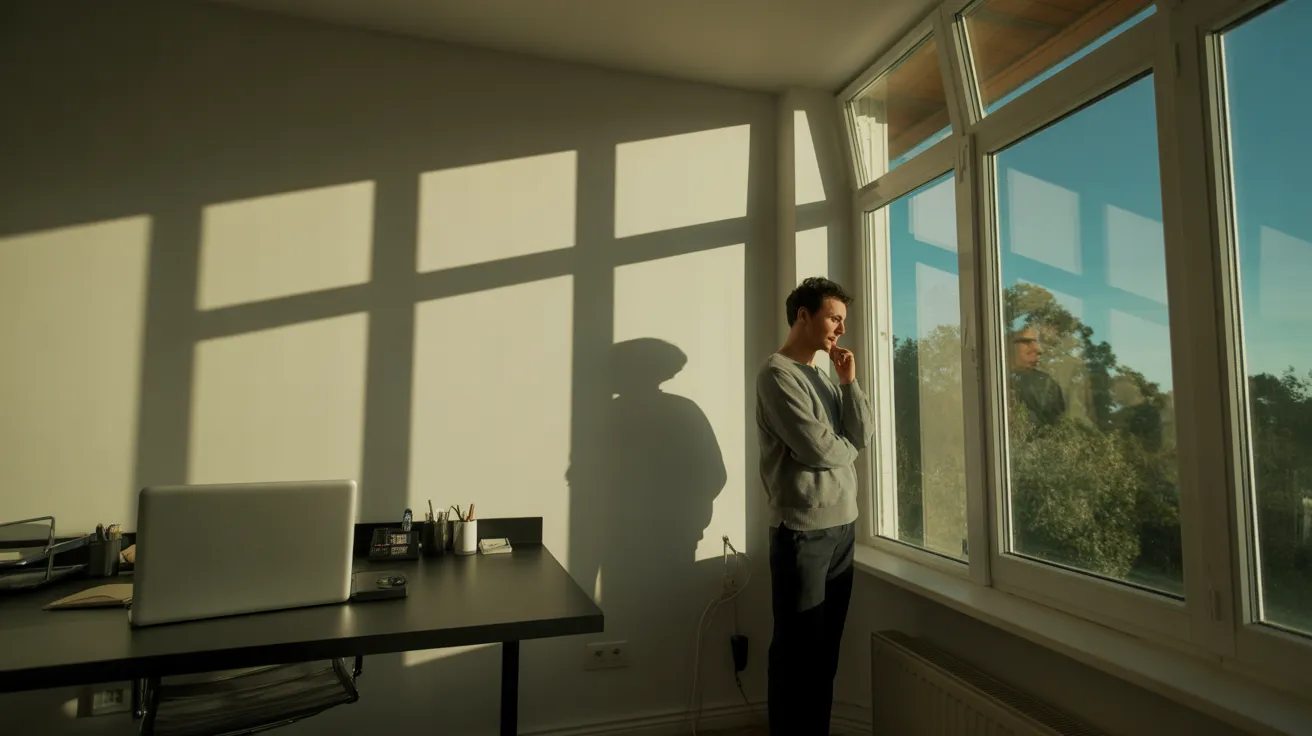
Your Questions Answered: A Screen-Free Bedtime FAQ
As you begin to implement these changes, questions and unique situations will inevitably arise. Here are answers to some of the most common queries we receive about creating a screen-free bedtime routine.
My job requires me to be on-call or responsive to late-night emails. How can I manage this?
This is a common challenge in today’s work culture. The key is to create a system that separates true emergencies from routine work. First, have an open conversation with your manager about expectations and the importance of rest for productivity. For on-call work, use the Do Not Disturb bypass feature mentioned earlier. Add your boss and key colleagues to your “emergency bypass” list. This ensures you get critical alerts without being disturbed by every non-urgent email. For roles that require late-night work, try to create a “hard stop” at least 30-60 minutes before you intend to sleep, using that time for a non-screen wind-down activity.
I work the night shift. How do these principles apply to me?
The principles of a healthy sleep routine are universal, regardless of your schedule. The goal is to protect the period *before* you sleep, whenever that may be. Your “bedtime” might be 9:00 AM. Simply shift the timeline. An hour before your sleep time, your “Bedtime Mode” should activate. You should dock your phone outside your bedroom and engage in a calming activity. The core concepts—minimizing blue light, reducing stimulation, and creating a sleep sanctuary—are just as critical for a night shift worker’s daytime sleep as they are for a 9-to-5 worker’s nighttime sleep.
How can I implement a screen-free bedtime for my kids and teenagers?
This is a vital part of modern parenting. The most powerful tool you have is to model the behavior yourself. When your children see you prioritizing a screen-free bedtime, it normalizes the practice. In addition, establish a family rule, such as a central family charging station where everyone (parents included) docks their devices for the night. Utilize the built-in parental controls on their devices to set automatic “downtime” schedules and app limits. Frame the conversation around health, well-being, and getting good sleep for school and activities, rather than making it feel like a punishment.
I use apps to track my sleep or for meditation. Do I have to give those up?
Not necessarily. This is where intention is key. If you use a meditation app, you can start the session and then place your phone face down on your nightstand so you are not tempted to look at the screen. If you use a sleep-tracking app, you can activate it and then immediately put your phone into “Sleep Focus” mode to prevent any notifications from disturbing you. The primary goal is to avoid active, mindless scrolling and blue light exposure. If an app genuinely supports your sleep without leading you down a rabbit hole of distraction, it can be a valuable part of your routine.
What about privacy concerns with sleep-tracking apps or focus modes?
This is a valid concern in our data-driven world. When choosing an app, always opt for those from reputable developers. Read the privacy policy to understand what data is being collected and how it is being used. Be cautious of free apps that may be monetizing your data. For built-in phone features like Apple’s “Health” or Google’s “Digital Wellbeing,” data is typically processed on-device to protect your privacy. Always review the app permissions and grant only what is necessary for the app to function.
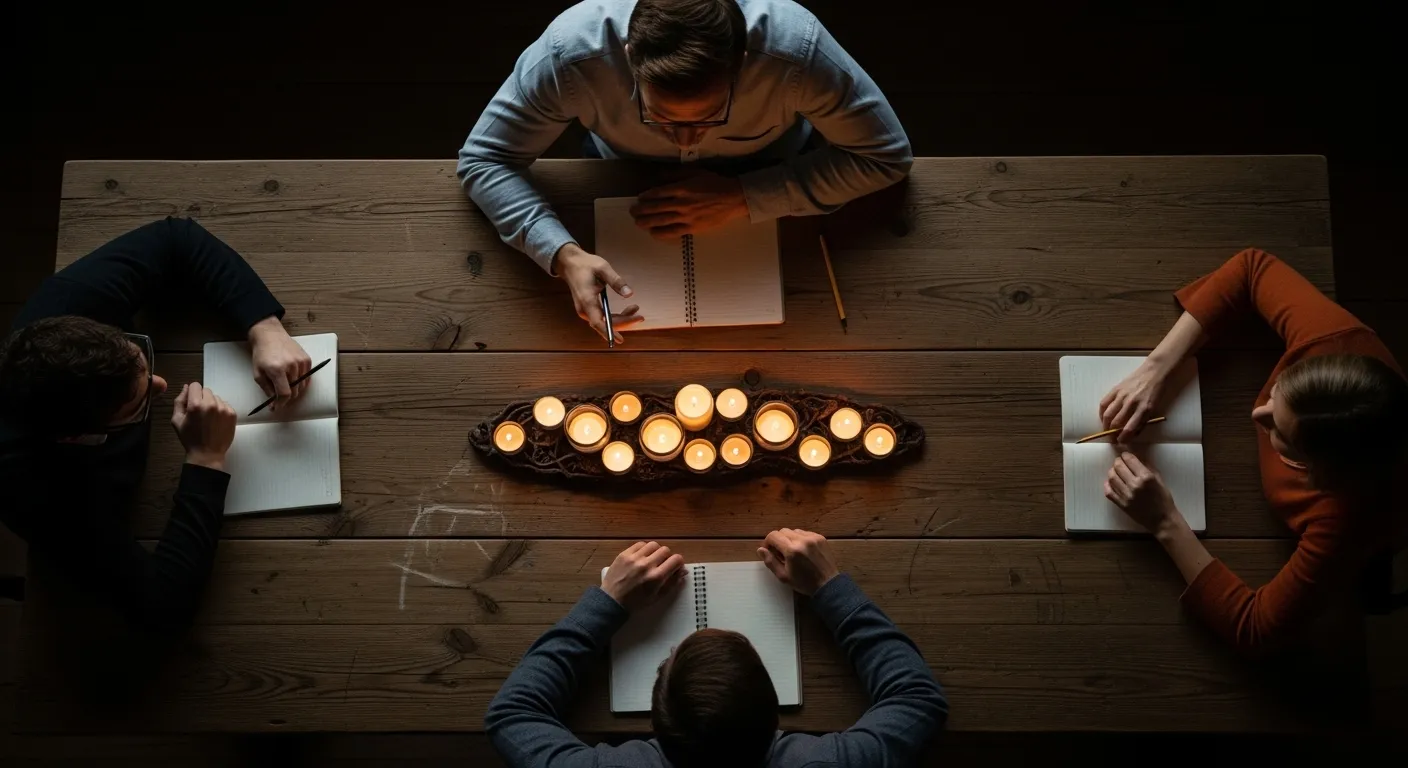
Your First Steps to a More Restful Night
We’ve covered the why and the how—the psychology of distraction, the physiology of sleep, and the practical strategies to build a healthier relationship with your technology. It can feel like a lot of information, but remember, the journey to better sleep doesn’t require a massive, overnight transformation. It begins with a single, small step, followed by another.
The core message is one of intention. It’s about shifting from being a passive consumer of whatever your device feeds you to being an active architect of your time and attention. It’s about recognizing that rest is not a luxury; it’s a fundamental biological necessity that fuels your focus, creativity, and well-being. By protecting your sleep, you are investing in every other aspect of your life.
Don’t try to implement everything in this guide at once. That’s a recipe for feeling overwhelmed. Instead, choose one or two small changes you can commit to this week. Consistency with a small habit is far more powerful than a short-lived attempt at a perfect one.
Here are three simple, high-impact actions you can take starting tonight:
1. Buy a dedicated alarm clock. This single, simple purchase is the key that unlocks your ability to move your phone out of the bedroom. It’s an inexpensive investment with an enormous return. Make it your mission this week to get one.
2. Create a charging station outside your bedroom. You don’t need anything fancy. A designated spot on a kitchen counter or a bookshelf in the living room works perfectly. Tonight, before you go to bed, plug your phone in there.
3. Schedule your phone’s “Bedtime Mode” or “Sleep Focus.” Go into your settings right now and schedule it to turn on 30 minutes before you want to be in bed. Let your device do the heavy lifting of silencing the digital noise for you.
By taking these first steps, you are sending a clear signal to yourself that your rest is a priority. You are drawing a gentle but firm line between your day and your night, between connection and recovery. The path to a more focused, energized, and well-rested life is not about finding more hours in the day; it’s about reclaiming the quality of the hours you already have. It starts tonight.
Disclaimer: The information provided in this article is for educational and informational purposes only and is not intended as medical or psychological advice. It is not a substitute for professional advice. Always seek the guidance of your doctor or other qualified health provider with any questions you may have regarding a medical condition or your health and well-being.


